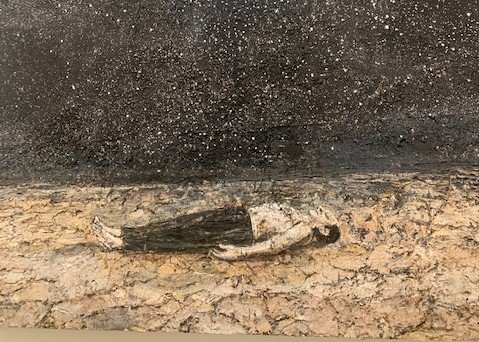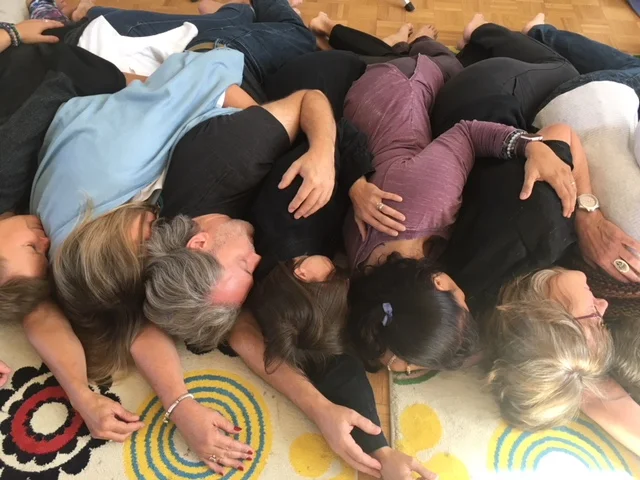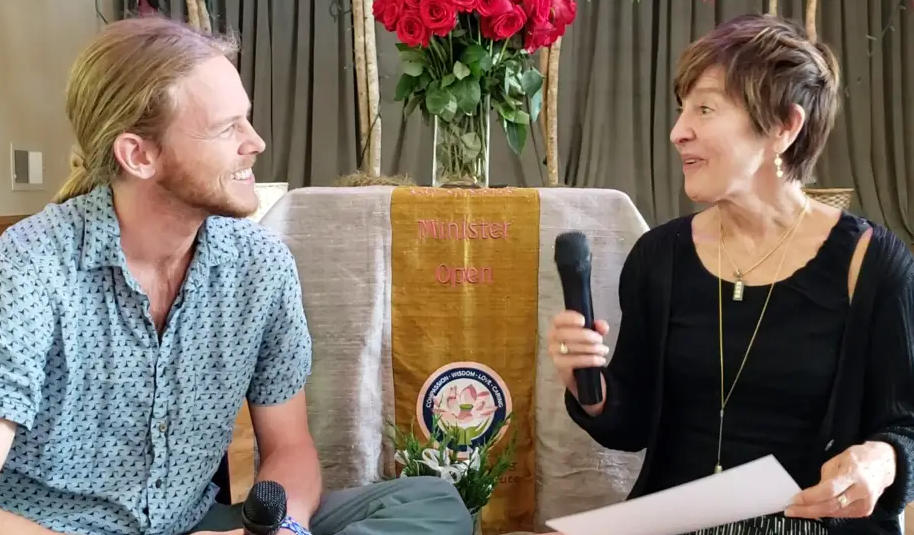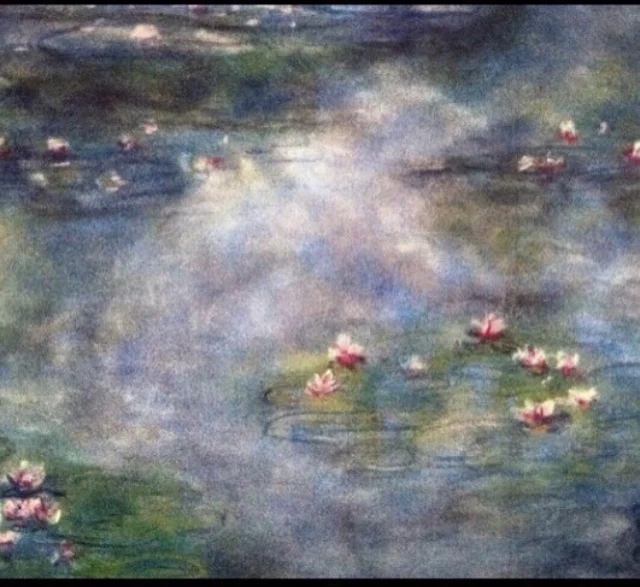
I was visiting with friends recently and while we were sitting around the table, we got to discussing the legacy we want to leave behind for those we love. I shared that my goal is to live a life that leaves behind a memory for my granddaughters and that in their mind, I was a good person, that I was kind and honest and that I was someone they would always be proud of. This got everyone talking about the legacy they would want to leave behind.
While I do not think everyone is afraid to die, or even of death itself, I do believe, and I feel as though I have witnessed, a certain semblance of fear that happens days, hours, and minutes before death. I think the common theme that I witness, is the fear of dying alone, or being alone, or most of all, the unknown… which can be frightening and cause a sense of uncertainty, which I equate to fear.
Working in end-of-life care has me constantly facing the reality of my own mortality. How can it not, right? Death is inevitable, my death is inevitable. It is the one certainty we cannot argue, prove wrong or avoid. So, knowing this, and having the mindset that you will one day die, does that change the way you live your life?
Yes, we are talking about the end life but if you listen really closely, what you will find is that what we are also talking about is the gift of life, the value we place on it and the appreciation we have acquired for its fragility. In my work I have been reminded to live my life fully, to appreciate all of its wonder and magic, and to be more wide-awake. Does that make sense to you, to be more wide-awake?
Providing care to someone who is dying is not easy, but it can be incredibly beautiful. With every person I meet, with every hand I hold and with every last breath I witness, I take something from each experience that makes me a better human being.
Sometimes there will be a large crowd of family and friends, which can be overwhelming and can throw me off a bit. I have learned to work the room, which means I assess each person, watching their facial expressions and mannerisms as I try to find the one who might need my support the most. I will go to them, sit down next to them and ask if there are any questions they might need answers to, or anything I can do for them. Sometimes I am spot on and this person welcomes the support, and other times, they don’t need anything at all from me and would prefer not to talk, and I respect that.
When I sit at the bedside of someone who is actively dying, and there is no one else in the room… I feel a sense of peace. The quiet does not bother me, it comforts me. The knowledge that this person will soon take their last breath does not frighten me, it reminds me how fragile and precious life is and that these moments are simply a part of life.
Learning to listen, at least in my opinion, takes time. It requires us to be patient, non-judgmental, open to what someone has to say and to never assume you know more or better than they do. To listen, means to hear their words, and understand the feelings behind them, to respect how they might feel and allow them whatever time it might take to say what they need to say.
I have learned so much about life working around death, most importantly the reality of the reminder that in death, there are no do overs. You only get one chance to be there for someone you love, to have a best, last memory… and how that plays out is totally up to you.
She always had so many questions about the work I do, and very interested in the dying process and what it might feel like to die. In a million years I would have never known those questions were being asked because of her own personal decline, that she kept secret from me and those she loves. It was not because she was stoic and strong, it was because she wanted to live her life fully without the worry that others were tiptoeing around her.
Whenever I see a patient, whether they were just recently diagnosed, are weeks or months into their process, or have a few short hours until last breaths are taken, I am reminded every single time what a true honor it is to care for someone who is nearing the end of their life. The moments I get to spend with a patient and family are personal for me and while it is my job and I am paid to do this work it has never felt like “work” to me. I think that people, like myself, who provide end of life care, feel that it is a calling. For myself, I believe this to be true.
In honor of suicide awareness and prevention month, we lovingly offer this story from one of our graduates, Melissa Seligman. We hold space in our hearts for those we’ve lost to suicide and also honor those grieving.
Some inspiration rests solely in an exploration of collective human wisdom or wisdom traditions within spiritual study, and some of the fresh thinking results from a contemporary mindset of the 21st century. The overlap is found in new innovations that draw from accumulated human wisdom. The recent emergence of death doulas and end-of-life coaches is part of that innovation.
[Poem] When Someone Wants to Die by Tarron Estes. Put yourself in this place of longing for death. Place this longing inside all the other dreams and wishes and extraordinary experiences life has ever given you or anyone. Prepare yourself to be bigger and better than you ever-felt possible. As you hold one of life’s most feared, unwanted, hated, inevitable realities in you own body and mind.
We often hear the question of how becoming an end-of-life doula is applicable in our world today. From NPR’s Morning Edition, this short interview sheds light on the importance of end of life or death doulas and their role in the care of loved ones.
Let’s face it. Elder care isn’t ideal care. No one wants to age and die. We don’t like to hear about or see into the reality of aging, death, dying. Most of us don’t want to talk about it, much less know how to find ease in being with people who are facing the later stages of aging and death. The reality is, we have allowed medicine and politics to govern end-of-life, a sacred life event, with a bottom-line mentality. While we are facing the reality of an ageing baby boomer generation which will impact systems and economies, maybe what life is asking from us as a culture, is to wake up to the reality of our mortality and what quality-of-life means to us beyond the great saviors of medicine, politics and economies.
I just graduated from the Boulder Sacred Passage: End-of-Life Doula training this past June, a powerful, life changing course. It felt to me like each person there, came to training at that exact moment, as if pulled by an unseen force, assuring that we connected and learned from one another.
Death literacy embraces a soulful interplay both through inspiration, exploration, and education. It embraces new forms of bringing forth the new death positive movement which includes sacred passage doulas. The intention for death literacy is to expand the conversation by being provocative using the term death literacy.
Having companioned many people as they transitioned in the last days of their lives as a soul midwife, the feel in the room was clear and instinct gnawed. Naomi, my mom, was beginning the process of her ascension and separating from this plane.
Sacred Passage End-of-Life Doula Brad Smith discusses fall and gratitude for death, and the ritual of Samhain. Creating physical space for those who have passed allows the living to offer gratitude and remembrance to our ancestors.
Once we know where we are going, we take an honest and courageous look at our life as it stands now in relation to this complete future reality. In my case, the two never lined up verbatim, giving me opportunity for growth and work.
One could argue that “wellness” is by nature an ever-shifting concept that serves to fill in what is missing and unhealthy across many sectors—whether healthcare, travel or real estate. And that it’s a fast-growing market because it addresses needs unmet, with a conceptual identity by nature “supplemental.” Death Doulas and those creating far more eco-friendly burials are practicing wellness. The medical world has simply not put enough resources into end-of-life care and research.
Is this what happens when I die when anyone dies - but in a condensed way? I’m suspecting that when I die, my “life” as defined by that which is inside my Box will be just chucked out as useless stuff - good while it was needed to live my life - but now as I die, useful? Satisfying? Who I am?
Even in my mother’s womb, the aura of grief surrounded me. Less than six weeks before I was born, my aunt passed away from cancer. She was only 31 years old and left behind a grieving husband, 3 young children, her parents, and 3 siblings. I was named after her. I was born into a world of tragic loss and equal celebration of life. You see, my birth gave hope to my family.
This is part of my story of becoming. Becoming who I am, a medicine for others to tap into and utilize. I am becoming a Sacred Passage End of Life (Death) Doula because like many reading this, I feel a pull towards facilitating people of all ages in acknowledging their mortality to more truly live the life they desire and supporting individuals in their more immediate dying process. Beyond this, something about it simply feels “right”.
Ego pontem - “I am a bridge” - would seem to be the most accurate way of expressing who I am, although my best friend would argue that I am a lighthouse (ego sum praeberi fari). I have always been someone to try to bring encouragement to others, to cheer them on as they make their way in life, art, relationships or health crisis’. I bring joy and use heart-led conversations to illuminate their paths, while they find “their way” in peace.
While many roads can fundamentally lead to this redemptive place, the first step is living consciously in relationship with a singular truth: we are all going to die.
To acknowledge this truth is essential in navigating a beautiful death. To deny this truth is the surest chance to create a passing mired in struggle and fear.
I knew I was pregnant.
My husband and I had just started trying for our second child, and having been pregnant before I was picking up on subtle (and not so subtle) changes - what I thought was morning sickness, a certain aching in my back, and the exhaustion that a full night's rest could not cure. Before even mentioning it to my husband he asked if he should pick up a pregnancy test because he was picking up on my symptoms too. Excitedly we waited for a positive result.
And it was negative.













![[POEM] So Much](https://images.squarespace-cdn.com/content/v1/51c9e6b8e4b043b66a213762/1601343688866-CG9E35WGWMIGHURSFG8U/Suicide+Awareness+Month.jpg)















